Stigmatization almost messed our lives - Obuasi traders
Traders in Obuasi voiced that how the media stigmatised them during the coronavirus outbreak last year is still haunting their dealings in Ghana after false information was blown that market women in the City in the Ashanti Region have abandoned the health protocols.
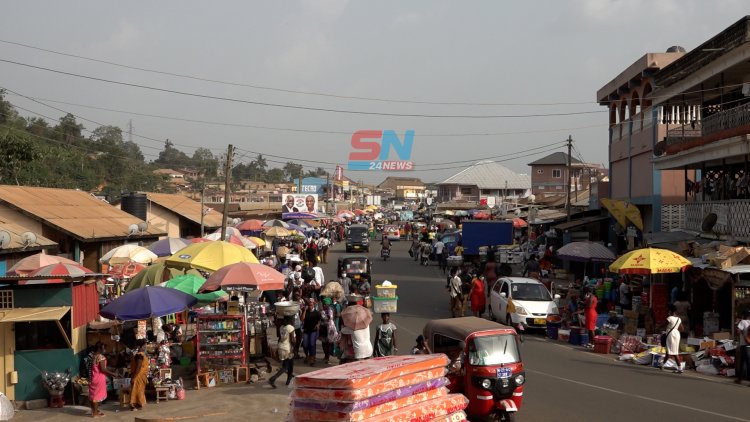
Traders in Obuasi have sadly voiced out on the disadvantage of being stigmatized by Ghanaians and the rest of the world during the coronavirus outbreak last year after media fabrications on their health status regarding the novel pandemic.
According to traders, they went through harassments after market women were tagged as flouters of the protocols spreading the virus through their market dealings.
Obuasi was reported by the Regional Health Directorate to be the hotspot of the deadly pandemic in the Ashanti Region, as the city became a household name at a point in time.
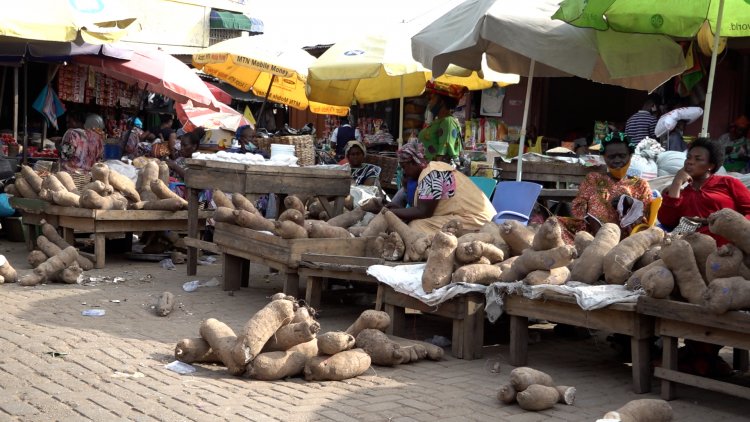
Traders have denied any reports which suggested they were victims of the pandemic and spoken out that such misinformation on their health affected their trade as some family members were attacked for their alleged impurity.
They applauded the various stakeholders including front line workers, the Municipal Chief Executive for helping them fight the coronavirus and will continue to observe all the laid down protocols outlined by the president of Ghana, Nana Addo Dankwa Akufo Addo in the second wave of infection of the virus.
“There was false information at the latter part of that we (traders) at the Central market have contacted the virus and many of our colleagues have been admitted at the various isolation centres. In fact, we were stigmatized and our families were affected heavily,” Ante Yaa, a yam seller told SoireeNews.
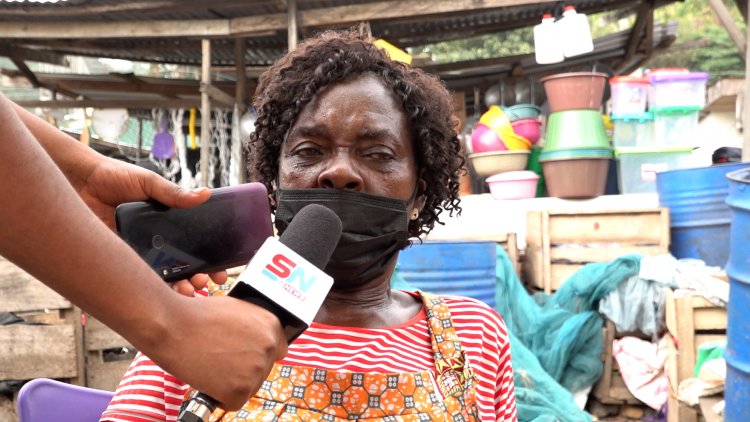
“Up till now, the right confirmation has not been made and we are suffering for it. One woman died and they misinformed that she passed away as a result of the virus which was uncalled for.
“The woman had been sick for years and her death coincided with the pandemic. We were maltreated and harassed and we are thankful to God that none of us lost lives to keep the mockery alive.
“Whatever information regarding the central market in Obuasi and the covid 19 was false.”
“Covid is real, we know that but that declaration of our false infection was wrong and it affected our business very well. The MCE played a key role and we are still adhering to the protocols of government.
"The police are patrolling and anyone who fails to observe health directives is arrested and punished.
“We are ready to fight this coronavirus to avoid a lockdown. I've lost my husband for 20 years and this is my trade. Should there be a lockdown as what happened last year, life will be very tough for me and my family.”
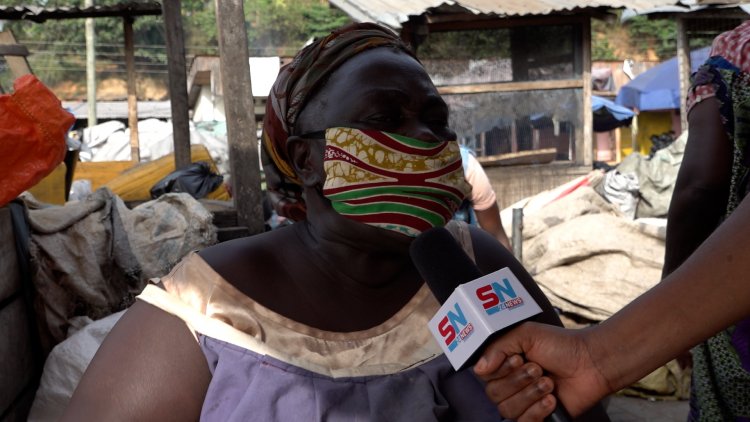
A yam seller also told SoireeNews that customers stopped patronizing their goods whenever they went distant grounds to trade and that alone was agitating to her brand at the Obuasi market together with a few colleagues. She opened on the distresses caused by the virus and called for every Ghanaian to join hands and combat it out of the country.
“In fact, we were humiliated by people since this covid rose. The numbers as they revealed were not right and it was a situation which affected our trade. Most of us and families were denied purchases whenever we travelled to trade.
“It was hearsay that coronavirus was spreading but not necessarily attached to traders in Obuasi. Thanks be to God that none have had any infection and suffered from the virus. We are putting things in place by adhering to the various protocols in order not to be humiliated once more.
Maame Bonsu, a staunch believer and Queen of the Yam sellers admonished traders who disobey the rules and educated them on the necessity of wearing the nose masks.
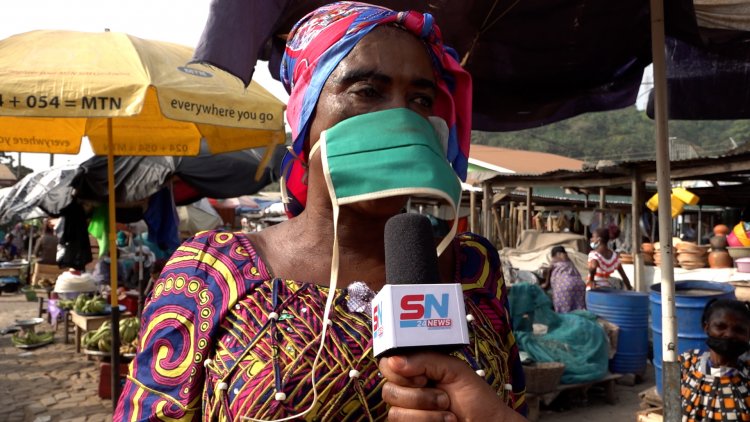
“The president is very serious than before on people who flout on coronavirus directives. We are not told to hang the mask below our nose or downwards our chin but adhere to the education they have given us.
“We must respect our authorities and observing the protocols as traders is a benefit to us and children in the future.”




































